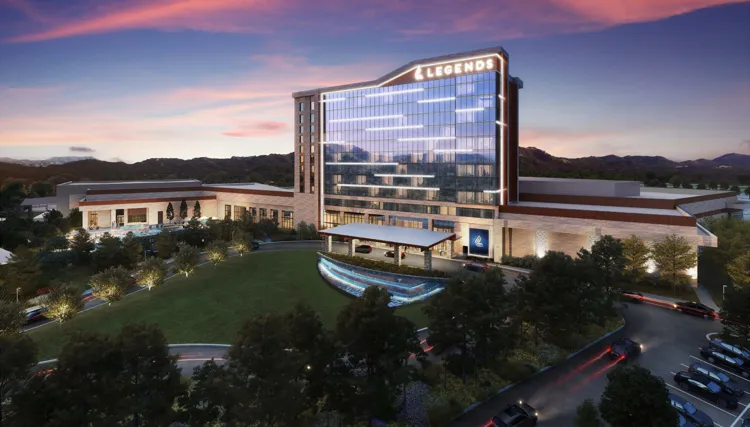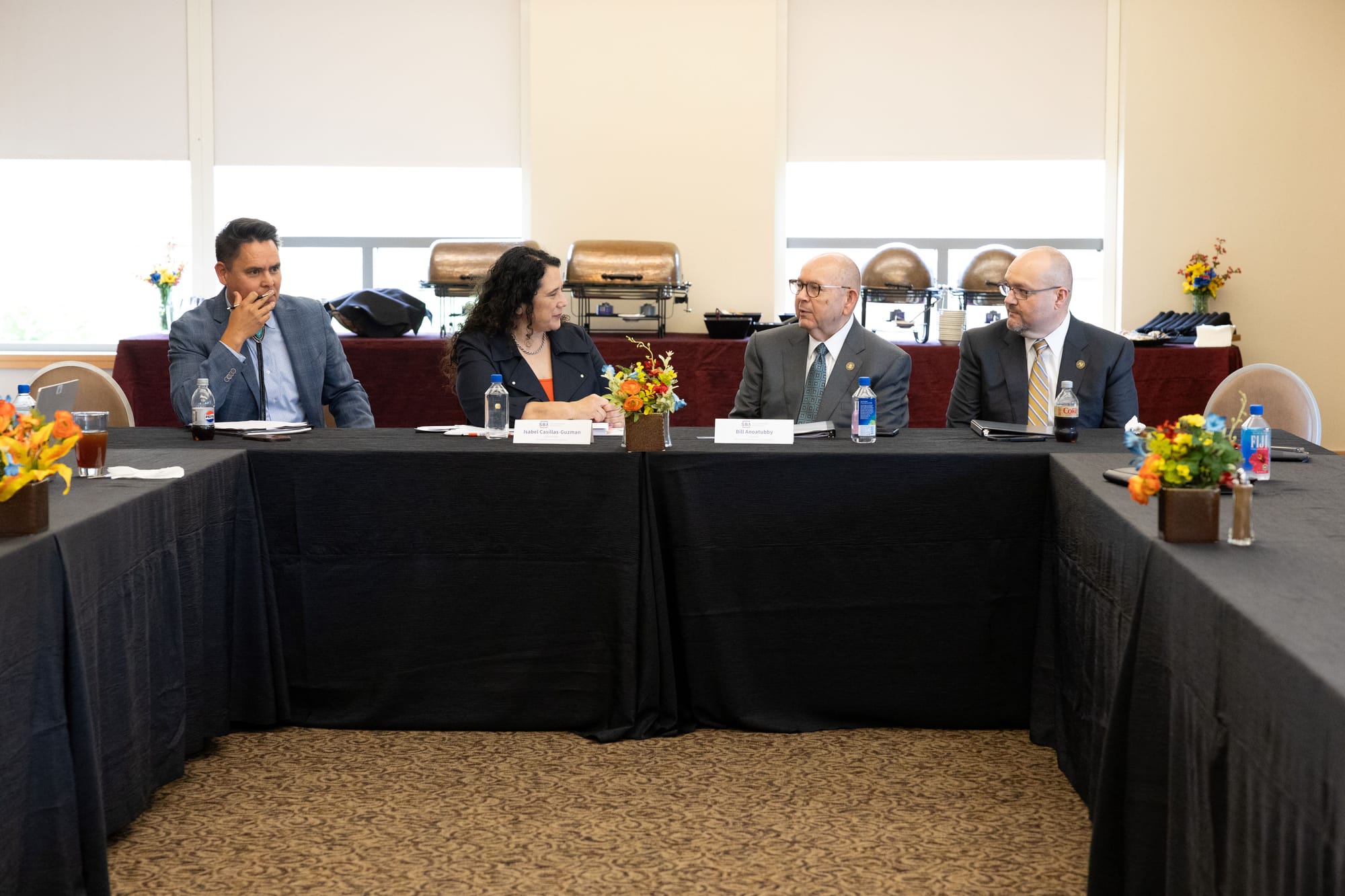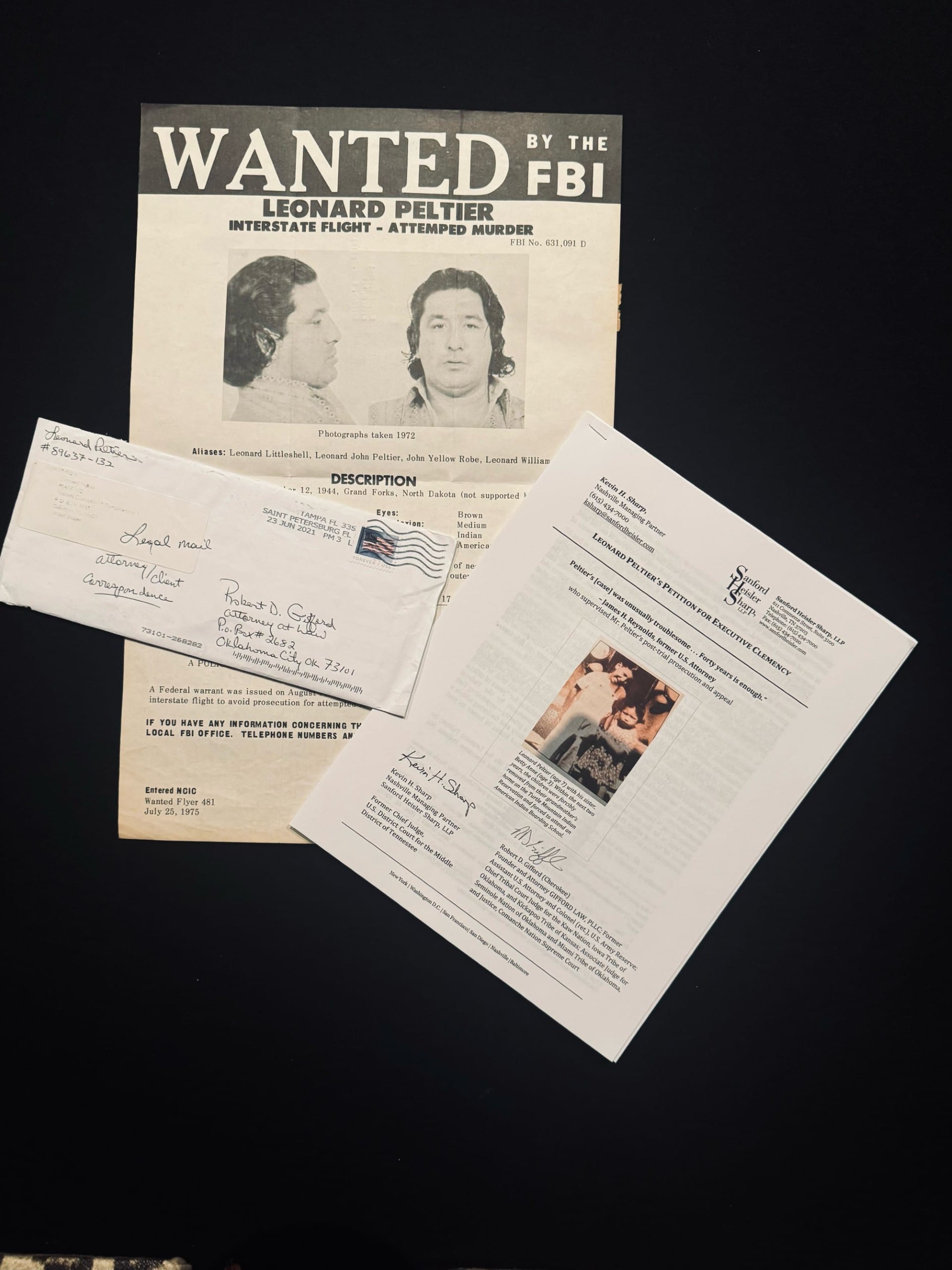

ICYMI: Final Arkansas gaming license awarded to CNE

BY D. SEAN ROWLEY
LITTLE ROCK, Ark. – Years ago, before there was a COVID-19 pandemic, Cherokee Nation Entertainment applied for one of the four gaming licenses approved by the Arkansas electorate in 2018.
It seemed the CNE lost its bid, then won it, then the Arkansas Supreme Court ordered the whole process reset and rerun.
On June 27, the Arkansas Racing Commission awarded the gaming license for Pope County, Ark., to CNE, and it appears this decision will stick.
“The state of Arkansas issued a gaming license to Cherokee Nation Businesses,” said Principal Chief Chuck Hoskin Jr. speaking at the Rules Committee meeting the same afternoon. “That, of course, is a long time in coming.”
The response of Council Speaker Mike Shambaugh was a near echo.
“Gosh dang it, it’s been a long time coming,” Shambaugh said. “That’s been a hard battle, so that’s great news, chief.”
CNB CEO Chuck Garrett was in Little Rock to hear the ARC’s decision and was unavailable to make his monthly report to the Executive and Finance committee, but councilors heard the news and had plenty to say.
“There was a couple of us here when this first started and we’ve seen it go uphill, downhill, back to court,” said Tribal Councilor Joe Deere. “Not everything is hurry, hurry, and Chuck Garrett and his legal team, man they killed it. We’ve watched them, we’ve griped at them, we’ve praised them. Now it’s come to fruition, and that’s going to take us a long way in the future for generations.”
The ARC awarded Cherokee Nation Entertainment the license over the only other applicant – and the other finalist in the previous fight for the license – Gulfside Casino Partnership of Mississippi. The submission by CNE was scored higher, and the difference was likely the endorsements of Pope County officials, which the ARC considered requisite.
Supporters of CNE’s efforts to secure the license included Pope County Judge Ben Cross and the Pope County Quorum Court. The ARC required at the endorsement of either, for full consideration of an application.
“(CNE) have a track record that is proven, and I am going to stick with a proven track record,” Cross said, calling the decision a “definitive moment.”
Amendment 100 to the Arkansas constitution was approved by voters in 2018. It allowed the issuing of licenses to operate four casinos in the state. Three casinos at Southland in West Memphis, Oaklawn Downs in Hot Springs, and the Quapaw Nation’s Saracen Casino Resort in Pine Bluff are open.
With the final gaming license assigned, developers will require additional permits to start construction. CNE claims its proposal would make a $5 billion economic impact for the state of Arkansas over the initial 10 years and create thousands of direct and tangential jobs.
Plans for the “Legends” resort and casino call for a hotel, several restaurants, an outdoor concert venue, 15,000-square-feet of indoor space and 50,000 square feet for gaming and sportsbook.
The casino is expected to lie between the 83 and 84 exits on Interstate 40 near Russellville, Ark.

Chickasaw Nation and Small Business Administration discuss Sulphur rebuild

SULPHUR, Okla. – Chickasaw Nation Governor Bill Anoatubby, along with tribal leadership and state and local officials, met with U.S. Small Business Administration (SBA) Administrator Isabel Casillas Guzman June 4 to discuss rebuilding the community after an EF-4 tornado slammed into the downtown area April 27, leveling multiple businesses and homes.
“We thank Administrator Guzman for facilitating this dialogue and sharing of resources to benefit those we serve,” said Governor Anoatubby. “In support of the many vital entrepreneurs and small business owners throughout the Chickasaw Nation, we will continue to strategically invest and offer programs and services to help the entrepreneurial spirit thrive and enjoy long-term success. We look forward to working with the SBA in these efforts.”
Governor Anoatubby said the Chickasaw Nation is working with the SBA and the Federal Emergency Management Agency (FEMA), as well as local organizations, and is ready to fill in the gaps to support Sulphur.
“We are part of this community. We love this place, and we are going to do whatever we can to help. We are ready to do that,” Governor Anoatubby said. “We have businesses here and it is in our heart, so we are going to work to help.”
The Chickasaw Nation operates several businesses and programs in Sulphur, such as the Chickasaw Cultural Center, Chickasaw Nation Head Start, Chickasaw Visitor Center, a youth center and senior center, and the tribe employs more than 400 people in the community.
A handful of Chickasaw Nation facilities in downtown Sulphur were damaged during the tornado, including the Artesian Hotel, ARTesian Gallery, Mahota Textiles and an administrative office, the latter two being destroyed.
Mahota Textiles has since moved its operation to 2122 W. Broadway in Sulphur.
Community wide, about 68 businesses and more than 140 homes were damaged or destroyed.
Governor Anoatubby said cooperation and collaboration are the keys to the recovery and rebuilding process for the entire community.
“Our teams have worked actively to collaborate with partners, locally and nationally, and with the emergency management agencies to find necessary resources for our citizens,” he said.
Immediately following the April 27 storms, Chickasaw Nation Lighthorse Police responded, and tribal emergency management deployed its Incident Command Center.
The fully staffed and self-contained mobile medical unit, Inchokma (feel well, be well), was on-site several days and open to the community to assist with nonemergency injuries.
Administrator Guzman said small businesses are the backbone of the community and the SBA has pledged to play a role in rebuilding Sulphur. The SBA can loan businesses as much as $2 million, $500,000 for homeowners and up to $100,000 for renters.
“SBA is about the American dream of business ownership, but that business ownership is integral to community and when the communities are impacted by disaster, SBA steps in to not only help the small businesses but nonprofits and homeowners,” she said.
Physical disaster loans were made available through July 1.
“The economic injury is going to be longer term. We know that people are still assessing their losses and will continually work with businesses on those economic injury loans through end of January of 2025,” Guzman said.
Guzman said she wanted to visit Sulphur to get a better understanding of the tornado’s impact and identify what the community needs.
In addition to low interest loans, the SBA has established a center for existing and new businesses.
“Here in Sulphur, we have a small business development center that’s actually supported by Chickasaw Nation,” Guzman said. “And that center has advisers who are able to help walk those new entrepreneurs through their business plans and help them strategize for the future.”
At the time of her visit, about three dozen loans had been issued. The average turnaround time has been seven to 10 days, said Guzman.
The Plight of Leonard Peltier: America’s Last Political Prisoner

by Robert Don Gifford
Justice delayed is justice denied, and no example rings truer than that of Native American activist and a citizen of the Turtle Mountain Band of Chippewa Indians, Leonard Peltier. Peltier, whose “parole” was recently denied after nearly half of a century in federal prison, is now 79 years old and in poor health. He has been imprisoned since a controversial conviction in 1975 for the murders of two FBI agents on the Pine Ridge Reservation (“RESMURS”) after a violent confrontation at Oglala on the Pine Ridge reservation in South Dakota that pitted over 40 people at the Jumping Bull Compound in a shootout with the FBI. It was known then, in a very familiar phrase to Oklahoman and those in the Osage Nation, as “the reign of terror."
Prior to Leonard Peltier’s jury trial, two others who were actually believed to be the gunmen, were tried and acquitted on the grounds of self-defense. After the “Not Guilty” verdicts, the Government then changed strategies. They tried Peltier in a different court to a different judge and jury. The FBI then doubled down on its tactics, and as it was later discovered, Peltier’s conviction occurred only after the use of false testimony, withheld key evidence demonstrating his innocence, a judge who had been once removed for anti-Native American remarks, and a jury who failed to disclose a strong racial bias against Natives. One key piece of evidence, a rifle claimed to have been used by Peltier and later found in a burning car outside of Wichita, did not match any of the bullets that actually killed the agents. Peltier was given two consecutive life sentences, and despite the evidence that Peltier did not pull the trigger, the FBI has never continued any further investigation into the deaths of the agents.
The U.S. government has since acknowledged its misconduct in the case, and one federal judge hearing Peltier’s habeas petition in 2002, noted the government’s behavior was “to be condemned.” Notably, the lead prosecutor at the time has since stated there was little evidence “to prove Mr. Peltier personally committed any offense” and the. “Conviction and continued incarceration are a testament to a time and a system of justice that no longer has a place in our society.” A federal appellate court judge who heard Mr. Peltier’s case on appeal in 1986, has repeatedly spoken publicly about the injustice and has urged clemency as “a healing process must begin” for what occurred both at Oglala, in the courtroom, and to the Indigenous of this country. After studying the history and court records, the logical and evidentiary conclusion is that Leonard Peltier did not kill the two FBI agents at Oglala on Pine Ridge.
Leonard Peltier’s freedom has been called for over the years by the Pope, the Dalai Lama, Mother Teresa, Nelson Mandela, Coretta Scott King, and Oklahoma’s own Chief Wilma Mankiller. National and world organizations such as the United Nations, Amnesty International, the Kennedy Memorial Center for Human Rights have also campaigned for his release. The fight for his freedom has continued since his 1977 conviction, to include a well-known documentary, “Incident at Oglala" was made by Robert Redford, and celebrities from Bob Dylan to Willie Nelson to Madonna to Rage Against the Machine has repeatedly fought to keep this in the public eye. In this past year, nearly three dozen members of Congress, to include the Chairman of the Senate Committee on Indian Affairs, have called upon the Attorney General Merrick Garland for his “compassionate release.”
Nearly thirty years ago, famed civil rights attorney William Kuntsler, who represented one of the acquitted defendants prior to Peltier’s jury trial appeared on campus at University of Oklahoma to talk about the great injustice done to not only Mr. Peltier, but to all Native Americans. Mr. Kuntsler, who had a storied legal career in defending members of the Chicago 7, Black Panthers, the Weather Underground, and negotiated on behalf of inmates during the deadly Attica Prison Riots, among others, warned of the dangers for any person who could be falsely accused and convicted of any crime when the immense power of a government agency wishes it.
Time and science have revealed that our justice system has extreme flaws. None more prevalent than Leonard Peltier's plight as America’s last “political prisoner." One strength of our legal system has been the intertwining of justice and of mercy. Leonard Peltier has been denied both for nearly half a century as his life has passed him by as the result of a flawed investigation, a flawed trial, and a flawed system. And yet, he now awaits a decision from President Biden in his Petition for Executive Clemency - an act of executive grace that would allow him to live out the rest of his days as a man returned to his people, and not as prisoner. As a new generation now learns more of this country’s dark history, they must remember Leonard Peltier. Even more importantly, they too need to speak up for him.
Robert Don Gifford is a tribal member of the Cherokee Nation and tribal court judge to several Oklahoma tribes and is a Civil Rights and Criminal Defense attorney in Oklahoma City and has served as a member of Leonard Peltier's legal team in the pending commutation to President Biden.
Native Oklahoma magazine introduces Editor

Native Oklahoma magazine is pleased to welcome Jennifer Jalbert as our new Editor. Having a background in business and journalism, she is the perfect fit for our publication. With a keen eye for art and fashion, Jennifer will also be curating our online store. We look forward to this new chapter and continuing to develop our relationships with Oklahoma's tribes and tribal communities.
Jennifer Wheeler Jalbert (Cherokee Nation) is a freelance writer, editor, and award-winning photographer. She has written for multiple Oklahoma news outlets including Oklahoma Today, the Stillwater NewsPress, and Stillwater Magazine. Jennifer is also a featured writer and collaborator for Native pop culture website A Tribe Called Geek.
As a veteran of the beauty industry, she draws inspiration from art, fashion, and nature. A GenXer to the core, Jennifer loves all things 80's, The Muppets, and vintage decor.






